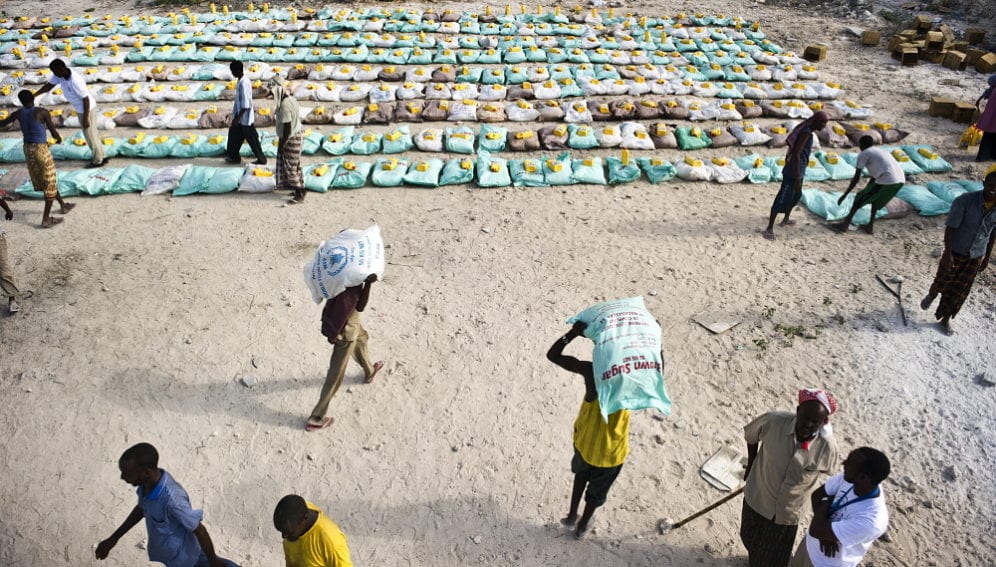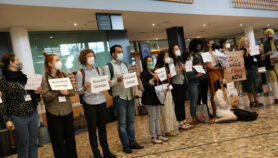By: Noshua Watson
Send to a friend
The details you provide on this page will not be used to send unsolicited email, and will not be sold to a 3rd party. See privacy policy.
The UN has received more than US$2 billion in aid commitments to fight Ebola. While that figure is double what UNOCHA (the UN Office for the Coordination of Humanitarian Affairs) requested as part of the inter-agency response plan, The Guardian recently produced an automatically updating interactive graphic showing (at the time of writing) that only about 62 per cent of commitments have been paid so far. [1]
Countries, multilateral organisations such as the World Bank and African Development Bank, NGOs, foundations and the private sector have paid US$1.3 billion so far, and pledged an additional US$820 million. At first glance, the private sector has paid US$28 million out of the almost US$70 million it pledged.
I recently wrote about opportunities to take advantage of the private sector’s engagement with healthcare infrastructures in affected countries to help tackle the Ebola crisis. But there is also potential for greater humanitarian fundraising from the private sector. Examining private sector donations to the Ebola crisis and other recent regional crises reveals two key commonalities that could be used to attract giving for future appeals: major appeals with a global profile and sectors like food and health that are popular with all types of donors.
Data from the UNOCHA Financial Tracking Service (FTS) shows that the private sector has committed more funds to the Ebola crisis through the multilateral system than it has committed to other crises this year. [2] Although its commitments are smaller by comparison with NGOs and foundations, multilateral organisations and country donors (13 per cent, 20 per cent and 64 per cent respectively), it is generally appears able to meet them more rapidly.
“ A proactive approach by humanitarian agencies to fundraising from the private sector could increase resources in the future.”
Noshua Watson
NGOs and Foundations have paid only 22 per cent of what they have pledged so far. In the same period, private sector organizations have paid 39 per cent. However, the private sector amounts include a US$15 million pledge from Google made within the past week. The NGO and Foundations totals includes a new $15 million from the Larry Page Family Foundation (a Google co-founder). Excluding those pledges means that the payment rate for NGOs and Foundations is 23 per cent and for the private sector it is 51 per cent.
This is also the case for the private sector’s commitments to other regional crises, according to the FTS’s tracking of funding for coordinated UN humanitarian appeals and strategic response plans. For the Syria Refugee Response Plan, NGOs and foundations have only paid 13 per cent of their commitments so far, but the private sector has paid all of theirs and countries and multilaterals have handed over 80 per cent of theirs.
Given the experiences with the Syria refugee and Ebola virus crises, it seems that the private sector can be engaged and quickly mobilized to commit funds.
So a proactive approach by humanitarian agencies to fundraising from the private sector could increase resources in the future. With good reason, private sector firms have evolved to think of philanthropy not just in terms of cash, but including other potential contributions, such as providing local contacts, logistics, telecommunications and facilitating money transfers. [4] Yet having upfront financial commitments and payments allows humanitarian agencies to respond more quickly and broadly to crises. Money still matters and the private sector can be a useful ally in major crises.
Noshua Watson is a business and technology researcher who specialises in the role of the private sector in international development. She has worked in media, academia and the private sector, including for Fortune magazine, the Institute for Development Studies in the United Kingdom and technology consultancy firm Accenture.
References
[1] Ebola funding tracker — interactive (The Guardian, 28 October 2014)
[2] Ebola Virus Outbreak — West Africa — April 2014 (Financial Tracking Service, 19 November 2014)
[3] Funding to 2014 Response Plans (Financial Tracking Service, 19 November 2014)
[4] Overseas Development Institute Humanitarian crises, emergency preparedness and response: the role of business and the private sector (Steven Zyck and Randolph Kent, 2014)














